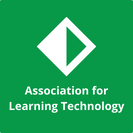The Assocation has submitted evidence to the Commons Select Committee of the Department of Business, Innovation and Skills for the inquiry into assessment quality in Higher Education.
Scope of the inquiry
The Business, Innovation and Skills Committee is holding an inquiry into quality assessment in Higher Education. The inquiry looks into proposed changes to quality assessment in universities and the potential impact of introducing a Teaching Excellence Framework.
For full information visit the inquiry webpage.
You can now access ALT's response in full here and read the Executive Summary below:
Executive summary
- ALT is making this submission as a membership body, representing as members over 1750 individuals and 180 organisations, including universities, colleges, Government departments, agencies, and software, hardware, and e-learning businesses from across the UK;
- Learning Technology has a major role to play in delivering high quality HE Learning and Teaching and in the definition and processes of any Teaching Excellence Framework (TEF). It can help to improve quality, facilitate quality processes, provide accountability and key data for stakeholders, reduce bureaucratic burden, and make improved processes affordable and cost effective. It can support agile changes, but can also hinder them if used inappropriately. Because of the rapid pace of change in Learning Technology, it is important that any TEF framework be reasonably generic and regularly reviewed;
- Understanding of Learning Technology issues by senior managers so that they are considered and built into culture is crucial to quality. Through initiatives such as HEFCE’s “Changing the Learning Landscape” where ALT was a partner in delivery, and through the passage of time, that understanding is increasing;
- Nevertheless there is still a significant deficit in knowledge and skills of Learning Technology by many responsible for and involved in delivery of learning and this can lead to patchiness in provision within and between deliverers, at a time when consistency of approach is reported as strongly valued by learners. It is therefore important that knowledge and skills be accredited and levels reported through the KIS as well as used in any TEF framework. Surprisingly there can also be large knowledge and skills deficits amongst learners and this could also be the subject of report;
- A supportive TEF has to stand on good educational principles. There would be advantages for staff and for HEIs but above all for learners who need to be fully involved in definition and in delivery, and we suggest that intelligent use of Learning Technology is explicitly incorporated into all frameworks from now on;
- The relationship with the proposed quality framework should not be a problem as the latter is increasingly threshold driven and the TEF will not be. It is important that the TEF be accepted as a UK wide system as that will reinforce the strong UK brand in worldwide HE;
- Ensuring that the TEF encourages appropriate support and development provision and recognition for teaching staff, in particular in the area of Learning Technology including digital and data literacy.
You can view other ALT's consultation responses here.
